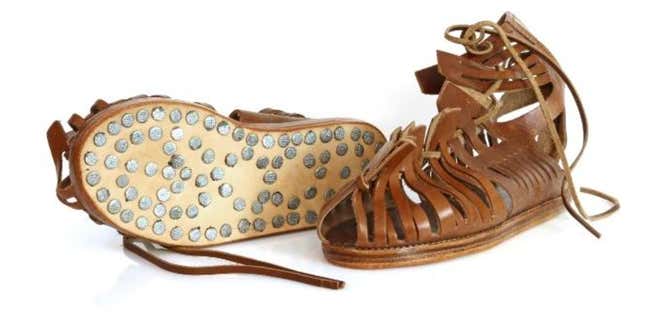At first blush, the remains of an ancient Roman sandal look more like little gnarled carcasses than footwear. But upon closer inspection and using X-rays, archeologists say the shoe parts they found at an ancient military site are unusually well preserved.
Discovered at a roughly 2,000-year-old fort near Oberstimm, a village in Bavaria, Germany, the shoe leftovers include a sole and iron nails, which would have offered traction over “rough terrain,” per a translated statement from the Bavarian State Office for Monument Preservation (BLfD). Typically, only the nails from such footwear remain, but this was a rare case in which the soles also endured. Archeologists found the remains in a well at the ancient fort; before the x-rays, they thought the twisted mass contained what was left of an old sickle, per a statement from the BLfD.
“So-called caligae [shoes] were worn mainly by Roman soldiers during the Roman Empire,” said Amira Adaileh, a consultant at the Bavarian State Office for Monument Preservation. However, the discovery “shows that the practices, lifestyles and clothing that the Romans brought with them to Bavaria were adopted by the local people.” Other findings at the site included Roman ceramics, food waste, and tools.

While the remains look nothing like the “gladiator sandals” of today, they’re strikingly familiar — and maybe even stylish — in a recreation published by BLfD; it depicts how they might’ve originally looked, back when the Roman fort is thought to have been occupied, between A.D. 60 and 130.
